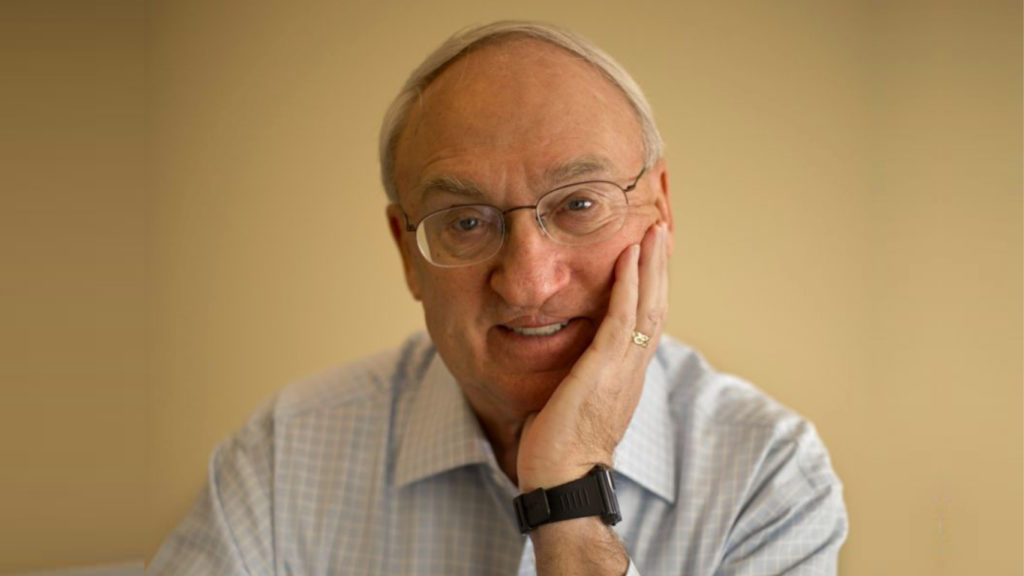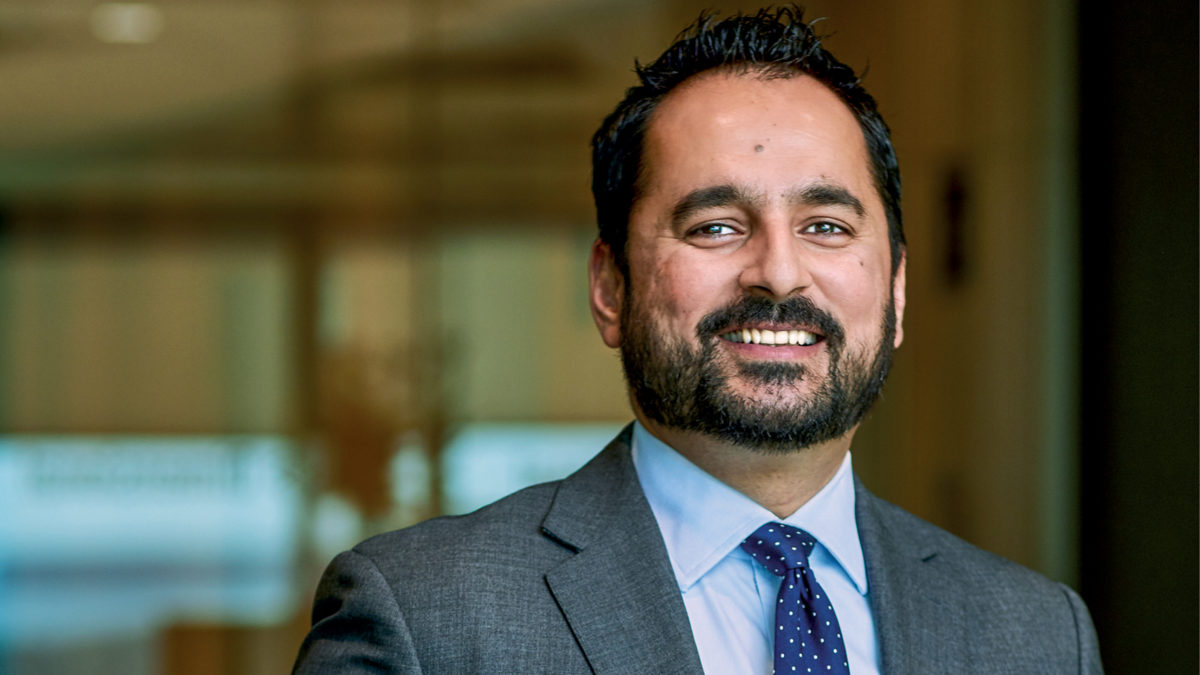Why 2021 shapes as a big year for governance activism
Investors need to watch for a surge in poor governance practices by company boards and management under the veil of responding to the impact of COVID-19. The latest stewardship report of a major global manager, Dimensional Fund Advisors, warns of an increase in questionable corporate activity this year.
Dimensional managed US$527 billion ($A685 billion), as at September 2020, including about A$30 billion in Australia. The firm has a research-driven systematic style of investing which results in it owning more than 12,000 securities across all its equity and bond portfolios. Its strong ESG focus is therefore under-appreciated, as often is the case with other managers of very broad portfolios such as the big index managers.
The firm’s ‘Annual Stewardship Report 2020’ details its principles, processes, and specific actions which are worth a read for insights on governance issues across the range for all investors. For instance, while Dimensional votes at a vast number of company meetings – 14,612 last year, covering 133,000 individual proposals – only 0.4 per cent of all proxy votes were about environmental and social shareholder proposals in that period. This is despite the strong “particular interest” Dimensional clients have in these votes, the report notes.
In fact, in terms of its direct engagement with companies, through a mix of letter-writing campaigns, calls and one-on-one meetings, environmental and social questions ranked number two, after executive compensation in total numbers. Board composition, shareholder rights and board structure were the third, fourth and fifth most frequent topics for engagement. The manager had discussions with 640 companies and initiated three-letter campaigns targeting 500 companies last year.
With its Australian share portfolios, Dimensional voted against remuneration reports which included AMP, AP Eagers, AGL, Sigma Health, and Sonic Healthcare. With board composition, the manager voted against the election of one or more directors at companies including AP Eagers, Brickworks, Crown, and Freedom Foods. With disclosures, it voted against the adoption of the Paris carbon emission goals and targets for Woodside and Santos.
Notwithstanding its strong support for disclosures, so markets can include all information in prices, these are assessed on a case-by-case basis. Any costs are also weighed up against the benefits. For instance, if a certain level of additional disclosure in a particular area costs a lot of management time and company money, it may not be in shareholder interests. Dimensional tends to think like an owner – on behalf of clients, who are the owners.
From a governance perspective, Dimensional expects the impact of COVID-19 will be felt in the upcoming proxy season – ending June 30 in the US and other countries and from July 1 through to December in Australia, representing the first opportunity for investors to be informed by the crisis. “Additionally, shareholders will have had the opportunity to observe and assess management and board responses to the pandemic, which may raise important questions about compensation, board qualification and risk management,” the report says.

“Historically, times of extreme market volatility have been met with an uptick in hostile takeover bids and related shareholder activism. As companies face falling public valuations, management may be incentivised to adopt rights plans to head off perceived threats of a takeover, often citing their belief that current valuations do not reflect long-term intrinsic value,” it says. “Market prices are real-time and forward-looking, and therefore Dimensional believes that current valuations are fair estimates of value. We also believe that the market for corporate control, which can result in acquisitions at a premium to current valuations, is beneficial for shareholders and should be able to function without undue restrictions.”
While poison pills, used by management to make takeovers all-but impossible, are no longer common in Australia, the UK and Europe, they are still sometimes used in the US. Dimensional counted 49 companies which introduced poison pills, without shareholder approval, in the first half of last year.
In Australia, Dimensional has had a lot of meetings with companies about their capital raisings during COVID, which have resulted in a dilution of some shareholder positions, according to Bhanu Singh, Sydney-based head of portfolio management for APAC. “Dimensional [as a big institutional shareholder] generally receives its fair share in these transactions,” he says. “We think it’s an important topic to address and speak to companies about. If these transactions are not handled properly, as was the case in 2020, then it can lead to adverse outcomes for some shareholders.”
This topic has also been raised by special interest groups in the local industry, such as the SMSF Association, which has lobbied for an equal access to new corporate issues for smaller shareholders. Globally, Dimensional’s three main stewardship priorities for 2021 are:
- Executive compensation. The report says many companies have delayed finalising performance targets and metrics for the current period until markets ‘stabilise’. Dimensional expects some boards to reset executive performance metrics, reprice options or to use discretion to revisit decisions in response to the fallout from the pandemic.
- Board effectiveness and assessment. In times of significant uncertainty, the importance of boards showing strong independent leadership is heightened. “It is critical that company boards are appropriately qualified to oversee risks to their company’s business. Dimensional will continue to focus on the importance of adequate board refreshment and assessment processes of portfolio companies, which are critical to maintaining a qualified, effective board,” the report says.
- Disclosure. In keeping with its belief in the efficiency of markets, with prices reflecting all information as it becomes available, Dimensional is particularly concerned about the adequacy of corporate disclosures. COVID-19 has added to the risks due to working-from-home arrangements, supply chain uncertainties, and rapidly changing public safety guidelines, the report says. “While uncertainty will undoubtedly continue throughout this crisis, effective governance demands that companies seek to address evolving risks while communicating those risks to shareholders.”
Dimensional has stronger active links to academia, probably, than any other major manager. The DFA operational company board includes co-founder and chairman David Booth, Nobel laureate Eugene Fama and his research partner Ken French, John ‘Mac’ MacQuown, and the two co-CEOs, David Butler and Gerard O’Reilly.
The mutual fund board, a US requirement which provides an oversight mechanism for investors rather than shareholders, has eight external academics. They include: Abbie Smith, George Constantinides, Douglas Diamond and John Gould from the University of Chicago; Ingrid Werner, a professor of finance from Ohio State University; Yale finance professor Roger Ibbotson; and, three professors from Stanford University – another Nobel laureate, Myron Scholes, and Darrell Duffie and Edward Lazear.
There is a separate board for APAC, including Australia and New Zealand – DFA Australia – of which Sydney-based regional chief executive, Glenn Crane, and head of APAC portfolio management, Bhanu Singh, are directors.
Singh has an MBA with honours in analytical finance from the University of Chicago. He joined Dimensional’s Santa Monica office in 2003 after gaining his undergraduate degree from the University of California, Los Angeles. After working on the trading desk in the US for about four years, he left to do an MBA at the University of Chicago’s graduate school of management, then rejoined the firm in Sydney in 2010.
To understand Dimensional it is helpful to know the firm’s history, which may provide comfort to those investors who are wondering whether the investment cycle will ever rotate back to favour value over growth again, given the dominance of big tech companies in recent years. From its birth in 1981 to the current day, Dimensional’s association with the cream of US academia could not have been stronger.
Dimensional was founded by David Booth and Rex Sinquefield, both former students of Eugene Fama at the University of Chicago in the 1960s. They became teacher assistants there, developing both a friendship and a keen thirst for knowledge about the workings of markets.
Eugene Fama (80) first published his landmark paper on the efficiency of markets in 1970, expanding on the work of Harry Markowitz 20 years earlier, which constitutes Modern Portfolio Theory. Dimensional’s primary goal is for investors to maximise expected returns for a given level of risk, which was also the target of Markowitz’s work.
Fama’s Efficient Market Hypothesis, whereby all available information is priced in, also explains the unpredictability of markets over the short term. The share market in particular does a ‘random walk’ in the short term but follows the fundamentals of the ‘three-factor’ model, as later explained by Fama and French (66) in the longer term, which is the basis of all value mangers today.
The three factors, first discussed in the 1970s, are: market risk; size, where smaller companies tend to outperform over time; and, price-to-book valuations, where less expensive companies tend to outperform in the long run. Fama and French more recently extended this into a five-factor model with the inclusion of a company’s ‘profitability’ and ‘investments’ – whether ‘conservative’ or ‘aggressive – both of which are more difficult to define.
Meanwhile in the 1970s, Myron Scholes (79), emeritus professor of finance at Stanford’s graduate school of management, was working with Fischer Black on development of the Black-Scholes option pricing model.
And Roger Ibbotson (77), who later co-authored a book titled ‘Stocks, Bonds, Bills and Inflation’ in 1989, with Sinquefield, was about to launch the former Ibbotson Associates, an asset consulting firm acquired by Morningstar. He is currently the major shareholder of an alternatives firm, Zebra Advisors, as well as his work with Yale.
Sinquefield (76) retired from Dimensional in 2005 because he was “bored”, he said, moved back to his hometown of St Louis and devoted himself to his philanthropy and politics. Active in the Republican Party, Sinquefield founded a conservative free-market think tank, the ‘Show-Me Institute’. Booth remained at Dimensional, becoming executive chairman.

Both Sinquefield and Booth (74) have significant philanthropic programs. Sinquefield has made extensive donations to St Vincent Home for Children in St Louis, where he spent some of his childhood and of which he is a current director, and other local and children’s growth and development causes. He believes that chess, of which he is a big fan, can transform children and their academic lives. He was instrumental in getting the World Chess Hall of Fame moved to St Louis, making the city the chess capital of the world.
Booth made headlines in 2008 when he donated US$300 million to the University of Chicago’s Graduate School of Management, where he was awarded his MBA in 1971. The donation was as a mix of cash and some of his share of future dividends from Dimensional Fund Advisors LP, the manager’s general partner. In recognition of the donation’s importance, the school was renamed the University of Chicago Booth School of Business.
Sinquefield’s life story is a classic American rags-to-riches one. He was born, into a poor St Louis family, with a cleft palate which required 18 operations by the time he was five, and then his father died. His mother couldn’t afford to keep her two children and he was placed with his brother in the St Vincent Home for Children until in his teens when the two returned to live with their mother. He has said of the orphanage experience that it “taught him to be disciplined”.
Dimensional’s investment style has tended to evolve alongside the academic research. In an interview, Australia’s Bhanu Singh gives an example: in 2015, the firm included a company profitability factor in all its portfolios, following a “breakthrough” study by Robert Novy-Marx in 2010, which discovered the right metric to be used. University of Rochester professor Novy-Marx subsequently became a consultant to Dimensional. His study followed some earlier work by Fama and French, explained in their 2005 paper. Factor investing has become more widespread in the past few years, helped by a new name – ‘smart beta’. “Breakthroughs do happen but not all that often,” Singh says.
The relationship between profitability and a company’s investments impacts what goes back to shareholders. Dimensional thinks of profitability in terms of cashflows generated by a company rather than its ‘moat’. Singh says: “A moat, as I have seen it defined, can be represented by a whole number of things, some quantitative – such as revenue and profits – and some qualitative – such as market position and perceived edge in R&D. If a company raises a lot of capital to finance asset growth, it may not necessarily be a good thing for shareholders. Research suggests that significant asset growth financed by additional capital can negatively impact future returns.”
A lot of work has gone into the impact of climate change and the metrics used for disclosure, which are notoriously inconsistent between companies around the world. Using various data sources, such as MSCI and ISS, scaling emissions intensity by revenue gives a weighted average in tonnes which can be underweighted or overweighted in a portfolio.
Singh says: “Working with the climate experts, we determined that greenhouse gas emissions’ intensity (emissions scaled by revenue) is a good metric to measure a portfolio’s exposure to greenhouse gas emissions which are linked to climate change. We can then design portfolios which use both security selection and weighting to reduce their exposures to companies with higher levels of greenhouse gas emissions. Our sustainability funds follow this to deliver a lower exposure to greenhouse gas emissions and various other environmental and social concerns…
“At any point in time, for Dimensional’s sustainable portfolios, we see reductions of about 70 per cent in our global equities portfolios, 60 per cent in Australian equities and about 90 per cent in the global bond funds,” he says. “On the supply side for emissions, oil companies, for example, have low emissions so we look at their reserves and scale them by total assets.”
The main conversations that value managers are having with clients at the moment, though, are to do with the value cycle. “We definitely think value is worthwhile even though it has struggled for 10-12 years,” Singh says. “Over the long term, value has been 3-4 per cent better… How do stocks get valued? How much do you pay for cashflows?” he asks. “If you are paying less, then you should get better returns. The conversations we’re having now are very similar to those we had in the dot-com boom.”
Dimensional opened its Sydney office, one of 13 offices around the world, in 1994 as the economy was getting back into swing after the recession of the early 1990s, followed by the build-up in the major international markets, particularly the US, due to what became a technology – mainly internet – boom and bubble which burst in 2000. The office currently has about 90 people. The firm also has a smaller Melbourne office.










